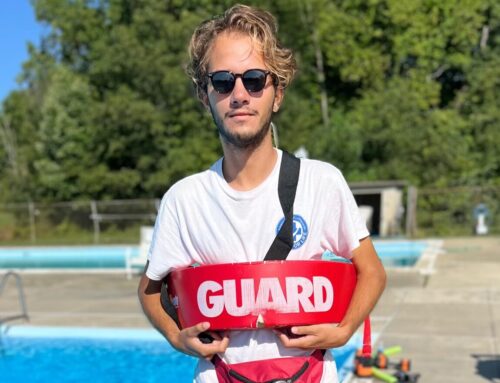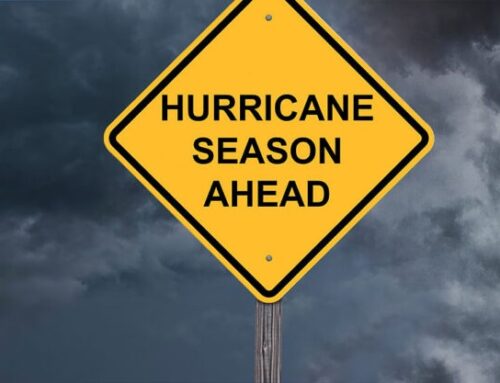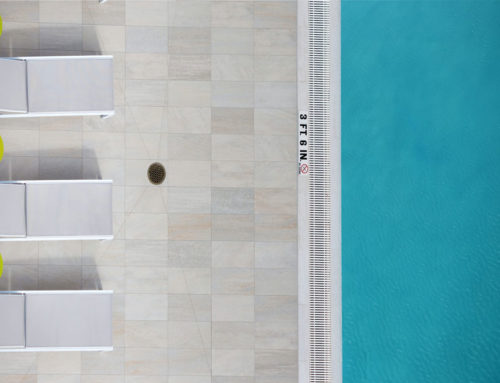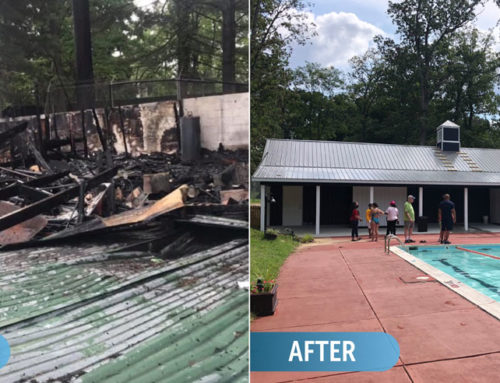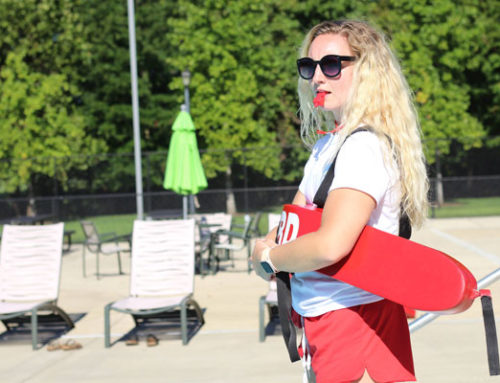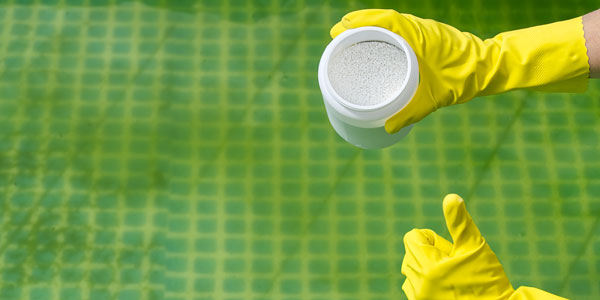
Your commercial pool’s chlorinating system works hard to keep the water clean, but it can only do so much. That’s why shocking your pool should be less of an emergency maintenance service and more of an inevitable part of your sanitizing program. Your pool’s swim may not be as safe as you think if you’re not regularly shocking your pool. If left unchecked and unshocked over a period of time, your commercial pool could become a breeding ground for harmful viruses, bacteria, and algae. Here’s why.
The Chemistry Behind Shocking Your Pool
There seems to be some confusion about the difference between shocking a pool and continuous chlorination. Chlorine works as an oxidizing agent to break down dirt, debris, and other organic materials. When chlorine molecules are used up, the breakdown creates chloramines, chemical compounds that are the building blocks of ammonia.
Chloramines are not only sensory irritants, they’re also responsible for an overly strong pool smell. Chlorine will continue to break down into chloramines over time and free chlorine will gradually become more and more diluted, rendering the initial chlorination ineffective. Since chloramines are ineffective oxidizers, your pool will continue to accumulate harmful organic compounds and increasingly become a health hazard to your guests.
We don’t recommend draining the pool to get rid of chloramines because it’s a waste of water that can be more easily cleaned through an effective shocking program. The easiest way to get rid of chloramines is to add at least 10 times more chlorine than chloramines present in the pool, a process most commonly called breakpoint chlorination. This means the water has enough chlorine free to do its job and oxidize germs, sweat, urine, and more. Determining breakpoint chlorination for your pool requires a test of the water and some quick calculations.
Depending on usage and other environmental factors, chloramine levels will build back up and then it will time to shock the pool once again. But that’s exactly why shocking your pool is so important — it’s a cyclical process of maintenance, not a definitive solution.
How Often Should I Shock My Pool?
The ideal free chlorine range should be between 1–3 parts per million (ppm). Alternatively, the chloramine count, also known as combined chlorine, should never exceed 0.5 ppm. It’s probably time to shock your pool as you see the chloramine count rise beyond the acceptable range.
You should shock your pool every 1–2 weeks generally as a rule of thumb, but these factors will influence the duration of your chlorine’s efficacy:
- A large number of pool users (high bather load)
- Seasonal openings and closures
- Nearby landscaping features that may drop debris into the pool
- Ground slope away from the pool deck that affects water runoff, which transforms your pool’s cleanliness and alkalinity.
- Algae growth or blooms
- Severe weather conditions, such as heavy rains, storms, bright sunlight and excessive heat, etc.
Your pool will likely have to be shocked more often than a residential pool because of the higher bather load. If any of the above conditions are noticeably affecting your pool’s chemistry, then it’s probably best to shock your pool soon. We also have a quick reference guide to pool chemistry levels if you’re not sure whether you need to shock the pool.
Which Kind of Pool Shock Should I Use?
The most commonly used pool shock is Calcium Hypochlorite, which should be fine unless you live in an area with harder water, which could result in excess calcium hardness and throw off your pool’s chemistry. If that’s the case, you might want to consider using Sodium Dichlor, which contains zero calcium and has the added benefit of stabilizing your chlorine with cyanuric acid and increasing its efficacy.
You probably already know how hazardous these chemicals can be. You can certainly shock your pool yourself, but we also know that not everyone will feel comfortable performing the necessary tests, calculations and applications in house. In either case, we recommend it’s a job that’s best left to the experts. Let us take care of your pool maintenance needs like shocking and help keep you and your pool protected.

